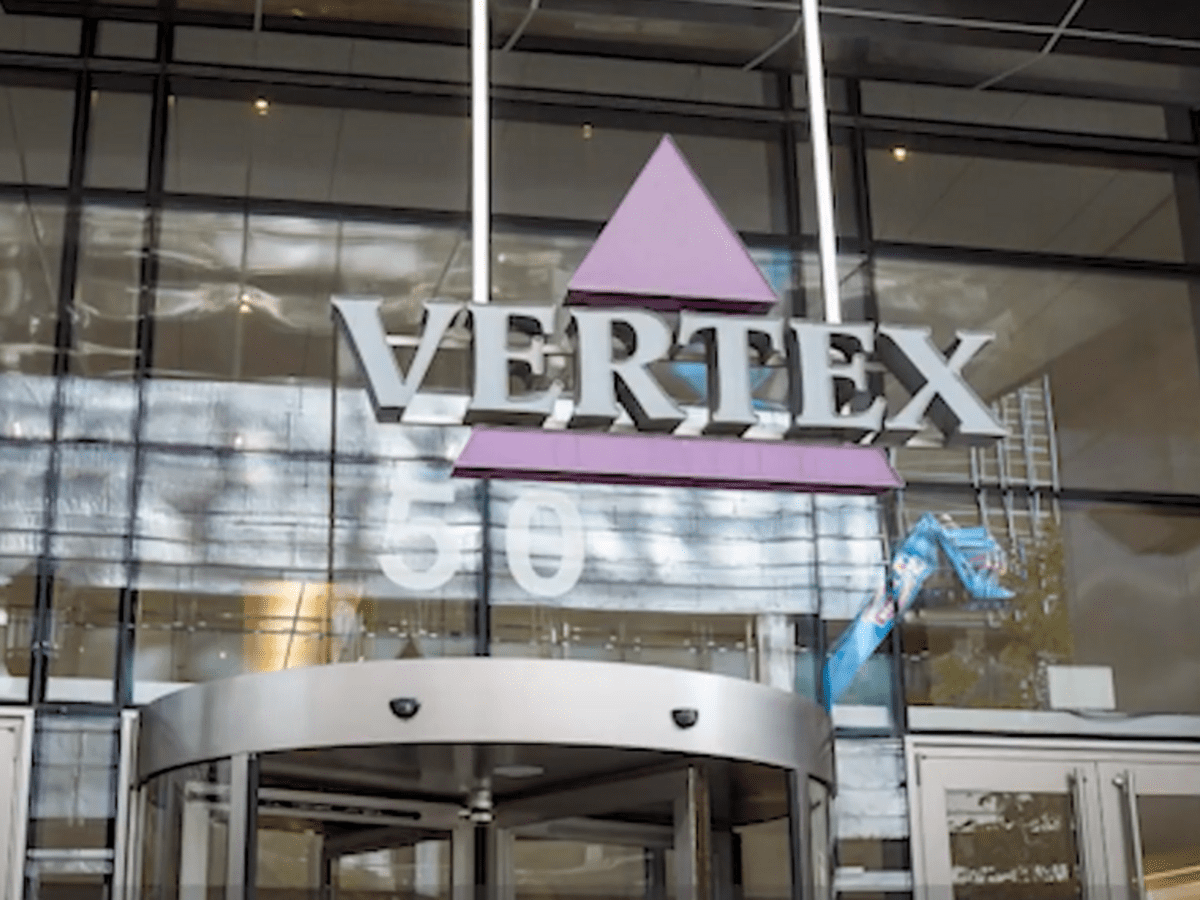A big pharma monopoly on a vital drug, Trikafta, is killing, and causing needless suffering to, people living with cystic fibrosis (CF) in South Africa. However, one woman living with the hereditary chronic disease is fighting back through the courts. Now, she’s calling on people living with CF across the country to join her case to initiate a groundbreaking “mass legal mobilisation” for justice.
Big pharma denying access to lifesaving treatment for cystic fibrosis
Cystic fibrosis (CF) is a systemic genetic disorder that impacts the respiratory system, digestive system, and other organs. A life-shortening chronic illness, it causes a range of severe symptoms and complications. These include lung infections, as well as bone, digestive system, and liver conditions.
Globally, studies have estimated that over 160,000 are living with CF. However, medical professionals have formally diagnosed 105,000 – just 65% – of those that have the disorder.
As of 2021, the South African Cystic Fibrosis Association (SACFA) registry project identified 523 people with CF living in South Africa. However, researchers have suggested that based on the population size and prevalence rates, the true number could be somewhere close to 4,700.
Improvements in treatments has meant that life expectancy for a person living with CF in many countries in the Global North is now upwards of 40 years. However, in the Global South this is not the case.
South Africa: a dire situation
Conversely, in South Africa, it is just half this age. A 2008 study – the latest comparable data for which this information is available – revealed a life expectancy of 20.5 years.
Given the life-shortening impacts of the disorder and its debilitating health effects, treatments are badly needed to extend and improve the lives of cystic fibrosis (CF) patients around the world. And a recently developed drug therapy can do just that.
Cystic fibrosis transmembrane conductance regulator (CFTR) therapies treat a mutated gene present in CF patients. More specifically, they work by assisting the key protein to regulate the flow of water and chloride in and out of a person’s cells. The malfunctioning CFTR gene protein causes the build up of sticky mucus that typifies the condition. As such, these CFTR therapies drastically improve the quality of life for people living with CF.
One of these is a combination drug known as Trikafta. However, multinational pharmaceutical company Vertex is keeping the drug out of reach to thousands of people in the Global South.
It’s why 39-year-old Cheri Nel from Johannesburg, South Africa, who lives with the disorder, is taking on Vertex through the courts.
Profits over people
Vertex Pharmaceuticals has a globe-spanning monopoly on the ingredient formulation that makes up the life-saving combination drug, Trikafta.
It markets Trikafta at the eye-wateringly exorbitant price of US $326,000 per patient per year.
Given that cystic fibrosis (CF) is a lifelong condition, the extortionate price tag is profoundly prohibitive and putting lives at risk. Of course, while it forces CF patients to fork out unconscionable sums for the lifesaving medicine, the company is rolling in staggering profits. In 2023, it posted US $9.87bn revenues from CF products.
Moreover, like with many drugs, public and philanthropic funding has contributed to the research and development of Trikafta. Yet now, the big pharmaceutical company holds control over who gets access.
Vertex could offer the therapy at a fraction of the price, or enable other companies to do so. Instead, it blocks more affordable generic alternatives through intellectual property laws across multiple countries.
Essentially, the corporation has issued a series of patents to prevent other companies from manufacturing or retailing the drug vital to CF patients.
It has implemented a number of these in South Africa. Worse still, since the company hasn’t registered the treatment with South Africa’s drug regulator, it is entirely depriving people in the country of access. In effect, the company doesn’t make Trikafta available in South Africa. To add insult to injury, it also stymies other companies the rights to do so.
As a result, Vertex’s stranglehold on the therapy is having devastating consequences for those it is denying it to.
Overturning the monopoly
So this is where South African resident Nel’s legal case comes in. She is seeking to overturn Vertex’s monopoly over the drug in South Africa. The legal case revolves around a compulsory licence application which challenges Vertex’s patents. It argues that Vertex patents are abusing Nel’s right to healthcare.
Compulsory licensing laws compel governments to intervene to enable other companies to produce a patented product. The landmark application is the first to call for a compulsory licence through the courts for the drug.
If successful, the bid could break the big pharma monopoly on the vital treatment. Crucially, it would override the patents so that other companies can manufacture generic and more affordable versions of the drug in South Africa.
Two organisations who spearheaded successful campaigns for access to lifesaving HIV medicines have also been backing Nel’s case. In May 2023, Doctors Without Borders (MSF) and the Treatment Action Campaign (TAC) filed to make legal submissions in support of the application.
In its May 2023 press release, MSF expressed the significance of compulsory licensing for challenging big pharma as a whole:
As organisations that were at the forefront of fighting for lifesaving HIV medicines that were unaffordable for most people living with HIV in the early 2000s, TAC and MSF also seek to introduce evidence on the recent international developments in intellectual property, particularly on access to treatments for drug-resistance tuberculosis (DR-TB), Hepatitis C virus, and COVID-19 medicines and vaccines amid the pandemic. This evidence will place into context the role of compulsory licencing as a mechanism to expand access to medicines.
Collective action against big pharma
Now, Nel is ramping up the legal action to the next level.
UK-based group Just Treatment has coordinated a campaign titled “Right To Breathe” to fight Vertex’s monopoly on cystic fibrosis (CF) treatments. It has been championing Nel’s case throughout the legal process. In its recent blog post, it explained that:
Cheri is calling on all eligible CF patients in South Africa to join her as co-applicants in this landmark legal case – meaning that if Cheri wins, every eligible CF patient wins too.
In other words, Nel is asking people living with CF nationwide to band together against big pharma greed. She said:
This huge American company has used their patent monopolies and billions in the bank to bully CF patients and governments across the world. They have held our lives to ransom as they try to maximise their profits – never caring about the human cost. My fight has always been for every South African with CF.
In other words, Nel hopes the case will bring about change for everyone in the CF community of South Africa.
Cystic fibrosis action could pave the way for others
Tanya, the mum of a young son with cystic fibrosis (CF), is already adding her name to the case:
I’m joining Cheri as a co-applicant in this case on behalf of my beautiful son Janco, who is 6 years old. He’s been through so much in his short life and like hundreds of other CF families in South Africa, we need access to these lifesaving drugs now. By acting together, I truly believe that we will be heard. My son deserves a life and a future and I will do everything I can to give him just that”
Nel centred the mass legal mobilisation in the context of Zulu Indigenous community philosophy:
Now we have a chance to all stand together and show Vertex – in the spirit of Ubuntu – united we are stronger than they will ever be.
In short, Nel hopes to show that collective action can take on big pharma – and win.
If the CF community in South Africa succeed, it will be a huge nail in the coffin of profiteering pharmaceutical monopolies.
Crucially, it could save the lives of many people living with the disorder across the country. What’s more, it could pave the way forward for just access to many lifesaving medical treatments worldwide.
Feature image via Breathtaking Fund NPC/Youtube screengrab.




